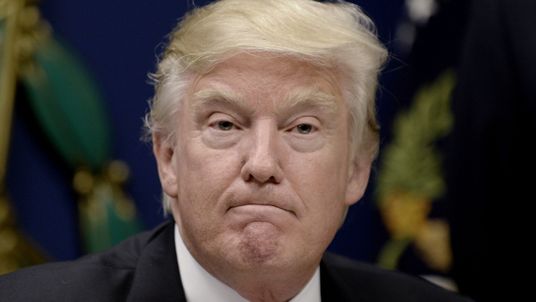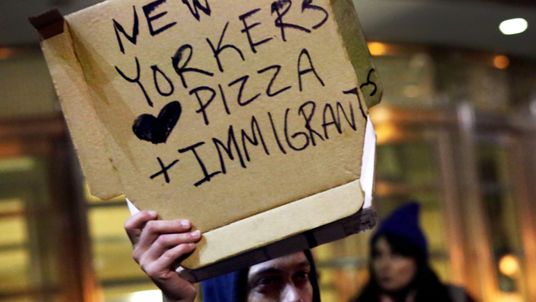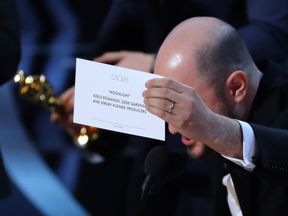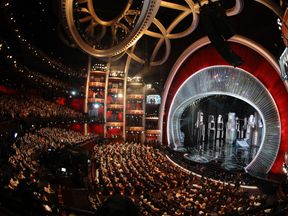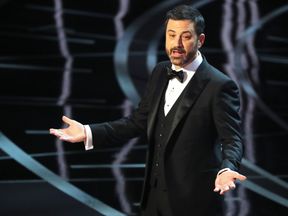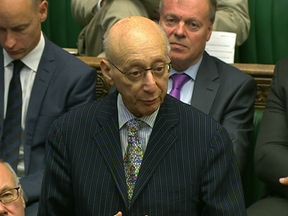Senator John McCain said the President's order has been "confusing" and raised a number of questions.
He said the order, which has led to hundreds of people being detained at airports around the world and unable to fly, could give Islamic State propaganda material.
Republican Senate majority leader Mitch McConnell also expressed concern, telling ABC's This Week the Government needs "to be careful".
But Mr Trump later added some clarity to his earlier move saying that the US will be issuing visas to all countries once secure policies have been put in place.
Mr Trump said: "My policy is similar to what President Obama did in 2011 when he banned visas for refugees from Iraq for six months.
Our country needs strong borders and extreme vetting, NOW. Look what is happening all over Europe and, indeed, the world - a horrible mess!
— Donald J. Trump (@realDonaldTrump) January 29, 2017
"The seven countries named in the Executive Order are the same countries previously identified by the Obama administration as sources of terror.
"To be clear, this is not a Muslim ban, as the media is falsely reporting. This is not about religion - this is about terror and keeping our country safe.
"There are over 40 different countries worldwide that are majority Muslim that are not affected by this order.
"We will again be issuing visas to all countries once we are sure we have reviewed and implemented the most secure policies over the next 90 days.
"I have tremendous feeling for the people involved in this horrific humanitarian crisis in Syria. My first priority will always be to protect and serve our country, but as President I will find ways to help all those who are suffering."
On Sunday, a senior US administration official was quoted by Reuters as saying that implementation of the travel ban had been a "massive success story".
It came as further protests, including one in Washington DC, took place across the US in protest at the order.
:: Iraqis say US President Donald Trump 'has gone to war with Islam'
Attorney generals from 16 states, including California and New York, said they may challenge the legality of Mr Trump's order and top Democratic Senator Chuck Schumer said his party would be introducing legislation to overturn what Mr Trump had put in place.
The controversial executive order for "extreme vetting" means no visas are being issued for 90 days to migrants or visitors from Iran, Iraq, Libya, Somalia, Sudan, Syria and Yemen.
His order also imposed an indefinite ban on the entry of Syrian refugees as it was "detrimental to the interests of the United States".
The ban on Syrians meant that among those refused entry was a Syrian Christian Orthodox family of six, who were turned back from Philadelphia International Airport after travelling to the United States from Lebanon, sources told Reuters.
:: Trump's immigration ban: Stranded travellers speak of fear and dismay
The executive order was widely condemned around the world, with the Arab League chief voicing "deep concern".
The Iraqi parliament's foreign affairs committee said in a statement: "Iraq is in the front line of the war on terrorism ... and it is unfair that the Iraqis are treated in this way."
Some in Iraq, including hardline Shia representatives, went further, demanding the Iraqi PM expel US citizens in retaliation.
Senior politicians in several European countries also criticised the order, including German Chancellor Angela Merkel and the French and Swiss foreign ministers.
But Mr Trump's allies stepped in to defend him during the Sunday morning political programmes on US television.
His adviser Kellyanne Conway told Fox News Sunday: "In terms of the upside being greater protection of our borders and people, it's a small price to pay."
White House chief of staff Reince Priebus said it might be possible that the number of countries included in the ban would be increased, possibly to include Pakistan.
He also added to the confusion over whether people who have green cards, which would normally give them the right to come to the US without a visa, would be allowed to enter.
In an interview with CBS News he said they would be allowed to enter, but then added that they would be subject to extra checks.
On Sunday, US Secretary of Homeland Security John Kelly said: "In applying the provisions of the President's Executive Order, I hereby deem the entry of lawful permanent residents to be in the national interests."
Read more:
:: Mo Farah - Trump seems to have made me an alien
:: Trump's travel ban leaves passengers stranded
:: In pictures: Protests over Trump's travel ban
:: John Legend: America 'has to be better' than Trump
:: Executive powers: What Trump can and can't do
:: President Trump: His first week in office

